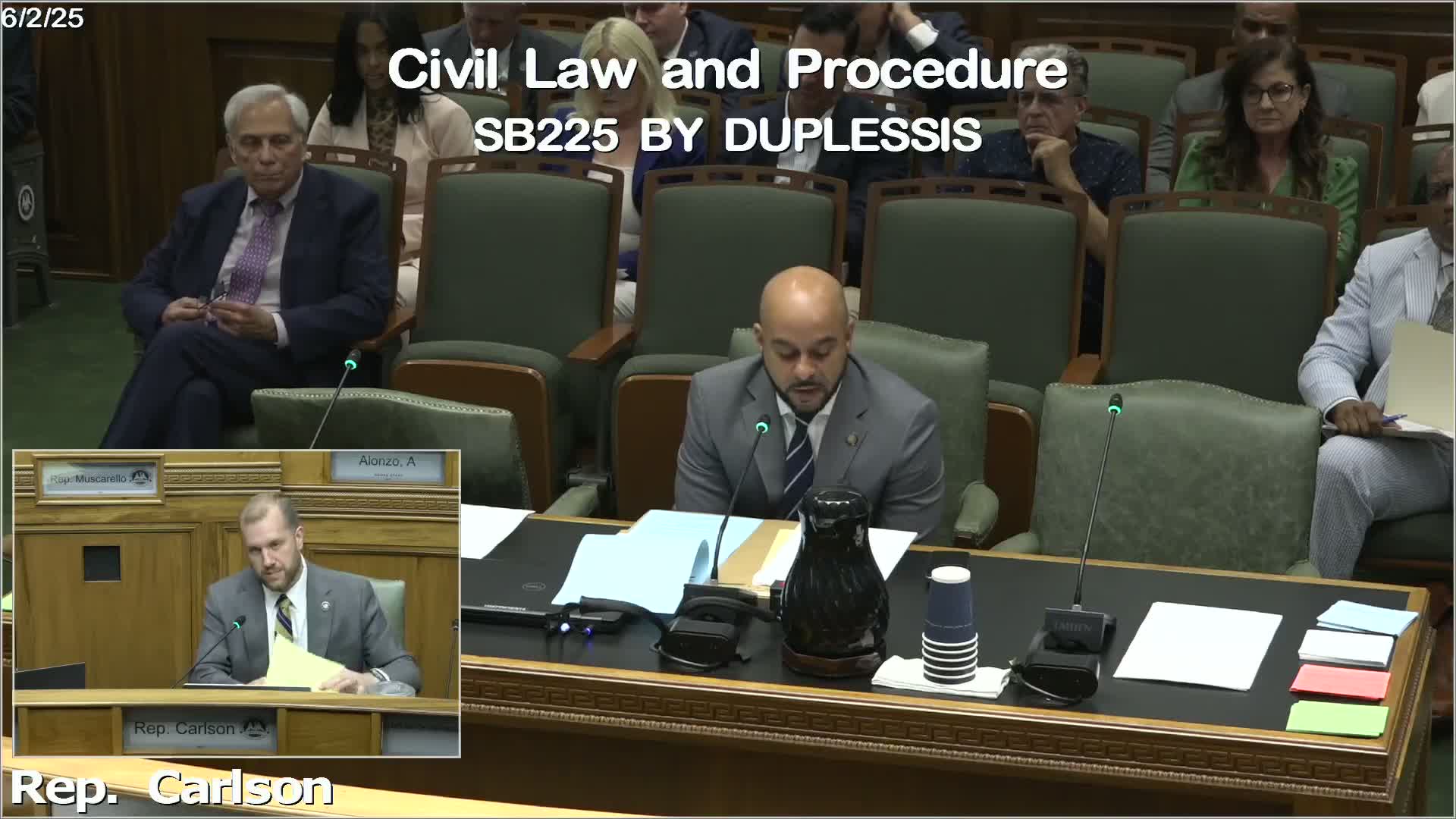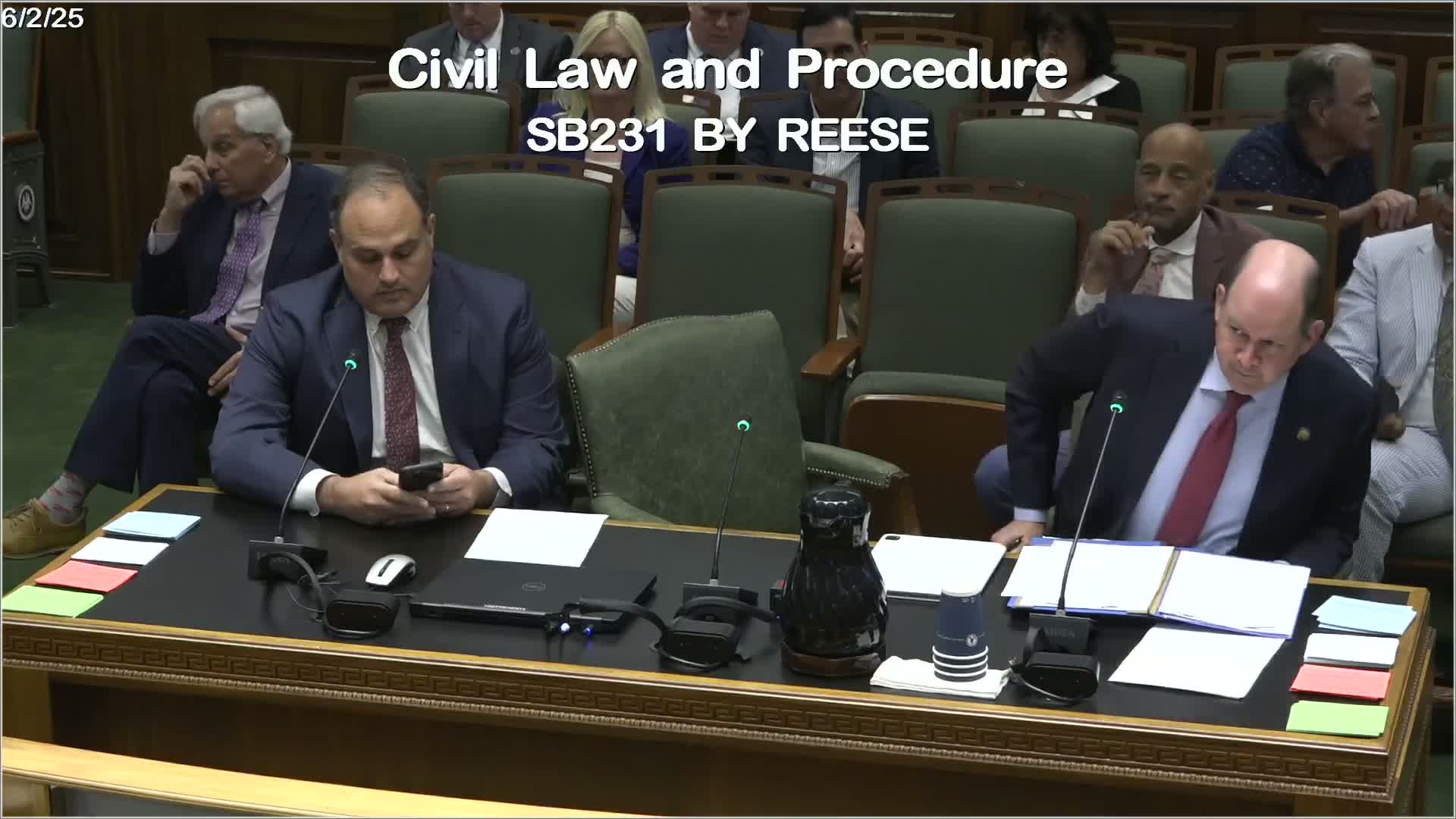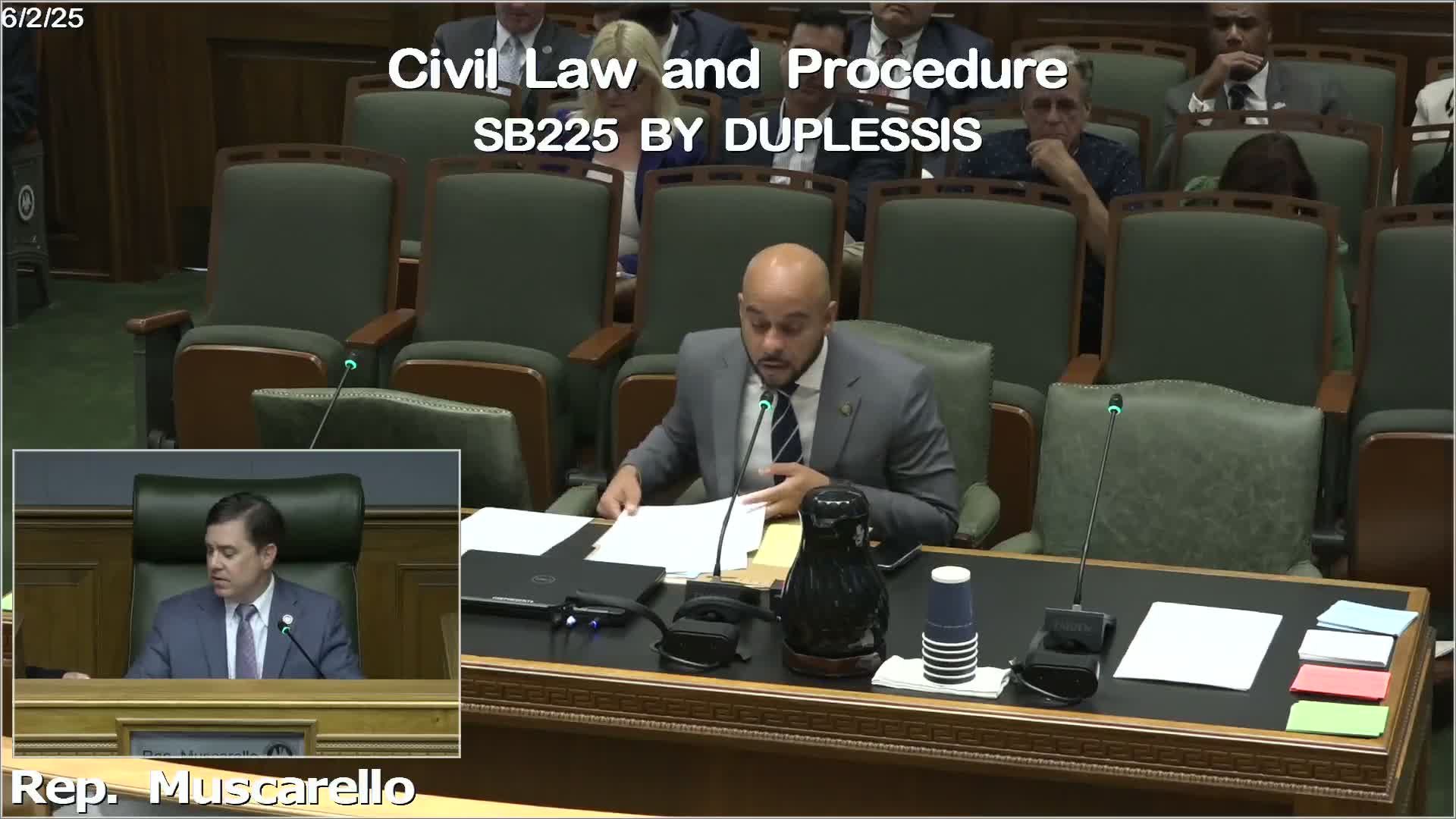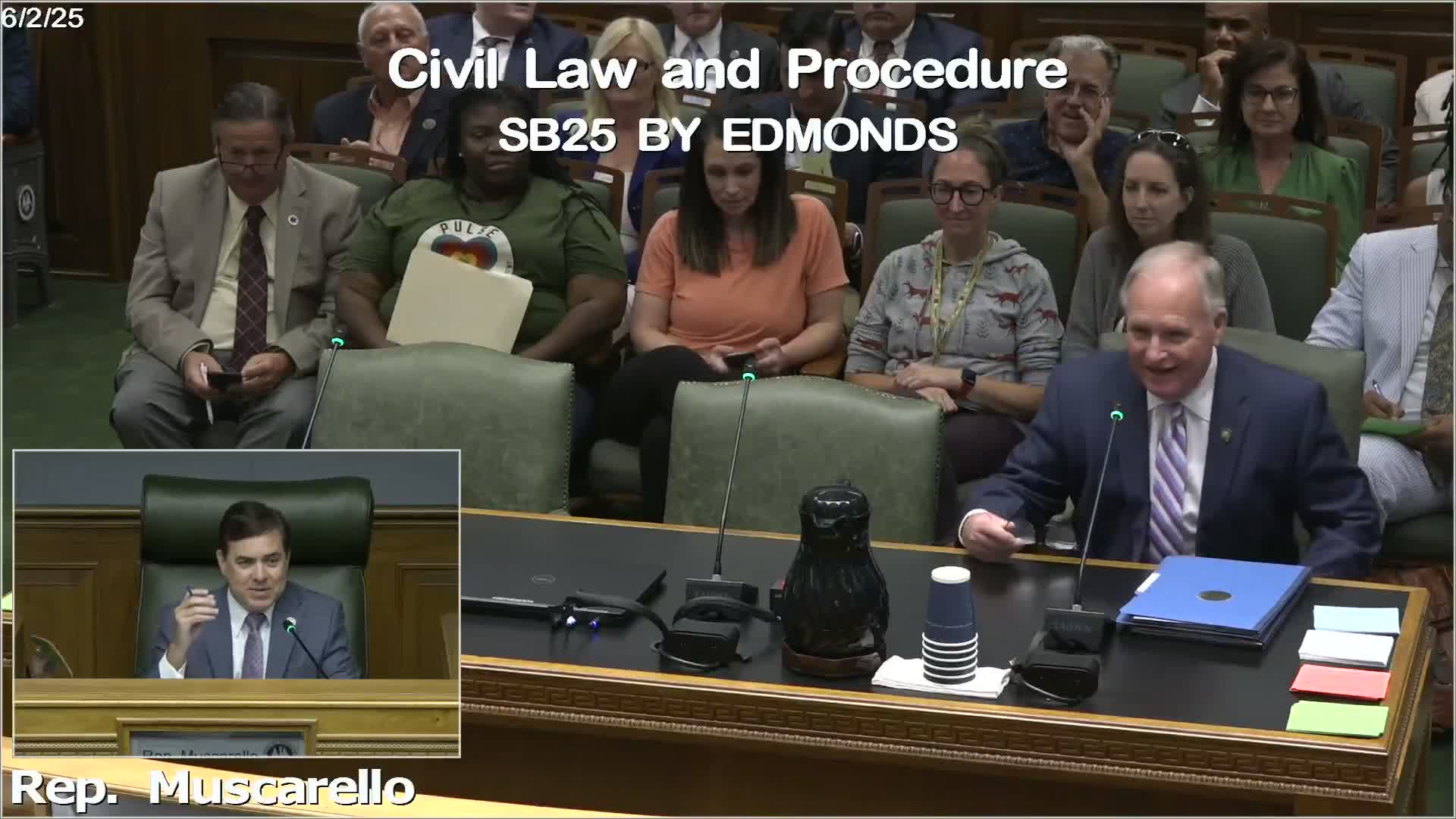Article not found
This article is no longer available. But don't worry—we've gathered other articles that discuss the same topic.

Sponsor agrees to limit civil-service constitutional change to state employees after New Orleans officials raise concern

Committee advances bill to limit jury awards for medical expenses to amounts actually paid by insurers or agreed providers

Committee deadlocks on bill letting nearby residents sue to enjoin illegal short-term rentals after heated testimony

